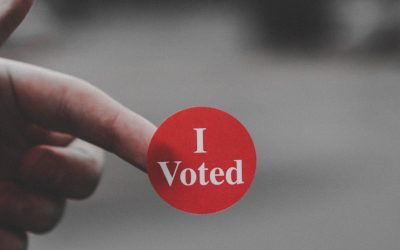BC CONSENSUS ON BRAIN INJURY
An important research project aimed at reaching a Consensus on the priorities and solutions needed to best serve people experiencing the intersections of brain injury, mental health, and addictions in British Columbia.
ABOUT THE PROJECT
Three years of research (2022-2025) guided by yearly B.C. Consensus Building Days
To act on recommendations of the BC Heads Together Think Tanks, a joint summit of multiple key stakeholders’ perspectives and research evidence, we are undertaking a multi-year project to gather data and knowledge for the purpose of developing a Consensus Statement on Research and Community Priorities, which could include best practices in serving individuals with a brain injury and concurrent mental health conditions and substance use/addiction challenges.
This project also builds on Dr. Julia Schmidt’s Convene Grant (currently underway) which aims to understand priorities for quality of life after brain injury. Preliminary findings from Dr. Schmidt’s grant suggest that key barriers in quality of life relate to the intersections of mental health, addiction, and brain injury.
NEWS
We’ve completed our Year 3 event and working on our proceedings report. The panel discussion and speaker recordings will be available soon.
Click one of the boxes below for more information, or to watch the video and see the outcomes of our previous consensus building days.
Year One: Exploring Brain Injury, Mental Health, & Addictions with a closer focus on Overdose Survival
On October 14, 2022 we held out first BC Consensus Day. Our keynote speaker, Dr. Elizabeth Plant spoke on: Toxic Brain Injury: A Hidden Epidemic Within the Drug Toxicity Crisis Below you will find a great overview of the events and the outcomes. Watch the Recording...
Year Two: Exploring the Intersections of Mental Health, Addictions, and Brain Injury with a focus on Intimate Partner Violence and Brain Injury.
This second year the focus was on brain injury as a result of intimate partner violence (IPV). We heard from a panel about the significance and importance of identifying intersections between populations living with brain injury, learned about research and screening...
Year Three: The final of three BC Consensus Days
The final of three BC Consensus Days brought together 160+ participants from around the province in concurrent in-person and virtual meeting spaces. Year 3 focused on the significance of stable housing for those living with brain injury. This focus was identified as a...
OUR purpose
We are committed to gather, in a good faith effort, the perspectives, ideas, and values of healthcare providers, community stakeholders, and individuals/families including Indigenous groups and marginalized minorities with lived experience of the intersections of brain injury, mental health, and addictions, to reach a Consensus on the priorities and solutions needed to best serve people experiencing the intersections of brain injury, mental health, and addictions in British Columbia.
MEET OUR RESEARCHERS

Dr. Mauricio Garcia-Barrera
Associate Professor, Dept. of Psychology, UVIC

Dr. Erica Woodin
Associate Professor, Dept. of Psychology, UVIC

Dr. Julia Schmidt
Assistant Professor, Dept. of Occupational Science and Occupational Therapy
The BC Consensus Building Days will bring together stakeholders including researchers, community leaders, policymakers, and individuals with lived experience to learn from the ongoing research and to engage in round-table discussions and voting in real time to reach a Consensus in BC on
the intersections of Brain Injury, Mental Health and Additions.
To improve the quality of life and health outcomes for people living with brain injury, mental health, and substance use/addictions .
We commit to individuals with the experience of brain injury to share the power in making decisions and forming policy regarding research and service delivery that affect them.
gathering many perspectives
All voices are heard
A focus on intersectionality
Meaningful changes throughout BC
What is a Consensus Statement?
A consensus statement is an expert opinion, developed by researchers and key stakeholders, in an evidence-based manner for the purpose of advancing the understanding of an issue. As an example, click below to review the Consensus Statement on Concussion In Sport.
Spread the word
We’ve created a series of infographics that you can download and use on social media to help to bring awareness on the intersections of brain injury, mental health, and addictions.
WHAT PARTICIPANTS SAID ABOUT THE HEADS TOGETHER THINK TANKS
“Immensely informative. Hearing directly from those who have experienced brain injury provides insight that cannot be achieve in the theoretical worlds. Learning the details of the struggles on the road to victory is very eye-opening. I find it especially uplifting to know what the speakers have accomplished in spite of the challenges that they faced.”

What you can expect?
This project responds to a pressing need to develop a Consensus Statement on the research and community priorities at the intersection of brain injury, mental health, and addiction.
Canada wide, the incidence and prevalence of brain injury surpasses that of HIV/Aids, spinal cord injury, breast cancer and multiple sclerosis combined.
BrainTrust Canada. (n.d.). Brain injury information.
For every one NHL player who suffers a concussion in sport, 5,500 Canadian women, sustain the same injury from domestic violence.
Van Donkelaar, P. & Mason, K. (2017, July 6). TEDx Kelowna: Ahead of the game.
Lack of services and supports attribute to:
Homelessness
Incarceration
Substance Use
Mental Health Issues
The unintended consequences of brain injury cost our country billions in emergency and health care services. If we do not include brain injury in every conversation we will never have a 100% solution to mitigating these social issues.
GET INFORMED / From the Blog
Learn about mental health, addiction & brain injury – and learn about our previous Heads Together Think Tank events that led to this Consensus building project.
Vote to make your voice heard
Canadian citizens of voting age have the right and responsibility to vote. For those living with a disability, visit Brainstreams to learn about Accessible Voting. We want to prepare you to speak with your local candidate about brain injury and its overlap...
Reinforcing Communities
Care should be focused on needs, not on diagnosis, as diagnostic-focused care perpetuates gaps and silos In this final event, Dr John Higenbottam, Faculty Emeritus, Douglas College, Clinical Professor, Department of Psychiatry, UBC, and Editor in Chief, Canadian...
Research and Prevention
For every one NHL player who suffers a concussion in sport, more than 5,500 Canadian women sustain the same injury from domestic violence. The Research and Prevention session featured reports from three different researchers. It began with an overview of the national...
WITH GRATITUDE
We gratefully acknowledge our partners in getting this work done.











